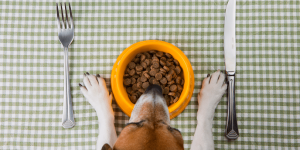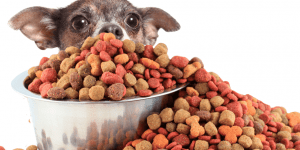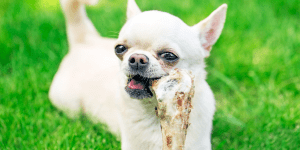Food for Thought – What’s The Best Diet For My Dog?
When it comes to deciding on an appropriate diet for your dog, the vast array of foods on the market may seem a little overwhelming, particularly to the first time dog owner.
If you have purchased a puppy from a breeder, it is likely you will want to stick with the diet the breeder recommended. However, this Holidays4Dogs article will provide information on different diets recommended for dogs.
It is very important to feed your dog an appropriate diet based on his, or her, age and energy requirements. Many people tend to feed their dogs commercial dried, or tinned food.
Processed v. natural diet.
While there can certainly be benefits in terms of convenience for the dog owner or breeder, other people are keen to steer away from processed foods and feed their dogs a more natural diet, which is said to be better for the dog’s digestive system.
dogs a more natural diet, which is said to be better for the dog’s digestive system.
According to the Pet Food Manufacturers Association, the manufacture and sale of pet food is stringently regulated.
It must follow various industry codes and guidelines to ensure that food safety standards are met.
However, others argue that the pet food industry is dominated by multi-million pound organisations where, allegedly, profit is sustained by using the cheapest ingredients possible.
There are many people, including veterinary surgeons, who believe that a more natural diet for our dogs is linked to their overall health and well-being. However, many more vets recommend and stock expensive commercial diets for their clients.
Research has established there could be negative health issues arising from feeding dogs certain commercial foods. These findings relate to nutritional value and microbiological safety. In addition, diet is said to affect behaviour. You can read more about this here.
However, while a natural diet seems to be an obvious alternative, this too hasn’t escaped its critics. Much of this criticism comes from commercial dog food manufacturers themselves. However, there is evidence to suggest the risk of salmonella is greater in raw-fed pet dogs than in those fed heat-treated foods.
With so much confusing information, how do you decide on the best type of food to feed the family pet?
‘Complete’ meals.
There are many different types on the market, both ‘wet’ and ‘dry’. Some are available in bags as a dry mix, others come in tins, or plastic/aluminium trays. Commercial pet foods are ‘complete’ – thereby, supplying a balanced nutritional food in one package. However, it is important to read the label carefully.
one package. However, it is important to read the label carefully.
Most leading manufacturers supply food for each life stage of the dog – puppy, junior, adult and senior.
Some offer specific diets for working dogs or for dogs with specific health needs such as coat, and skin conditions or, dogs with food allergies.
Alternative diets include raw, BARF and prey diets
Some dog owners prefer to stay away from more processed foods. If you are considering a raw food diet there are plenty of books and websites to look at before deciding on the best way of doing this.
This does require a little more prior planning. The prey diet, for instance, involves feeding whole carcasses, which many people may find distasteful, messy and impractical.
In addition, most people would probably have difficulty finding a reliable source of meat. However, leading pet shops these days, stock impressive ranges of natural diets and raw food, which makes it a much easier and more practical choice.
The books by Dr Ian Billinghurst provide a good source of information for anyone considering a raw food (BARF) diet. The BARF diet can provide enrichment for dogs in terms of natural chewing.
It is up to the individual owner to balance canine dietary choice, with their own personal convenience and lifestyle. There are benefits to natural diets, but on the other hand, commercial dog foods are readily available.
hand, commercial dog foods are readily available.
While some human foods are ok for dogs to eat, you should always be careful about feeding certain human food to your dog. Some foods are very bad for dogs and can cause serious health issues.
Many people are tempted to share festive foods with their pets, for example, but many of these foods are highly toxic to dogs.
For tips on feeding your dog at Christmas – you can read more here.
If you are worried your dog is not eating enough, you can read our other Holidays4Dogs article here.
Conclusion.
There are many alternative diets and no clear evidence which proves, one way or the other, which is best. It is a personal choice and very much depends on your dog, your lifestyle and, ultimately, what you feel is in the best interests of your dog.
While considering all of this, you be wondering if dogs have taste buds! To find out follow the link to our other article here.
If you are thinking of altering your dog’s diet, remember to do so gradually. All our Holidays4Dogs carers will feed guest dogs their usual food provided by owners.
This article is for information purposes only. If your dog is already suffering from a health condition such as sickness, or diarrhea, it is important to seek veterinary attention straight away.


